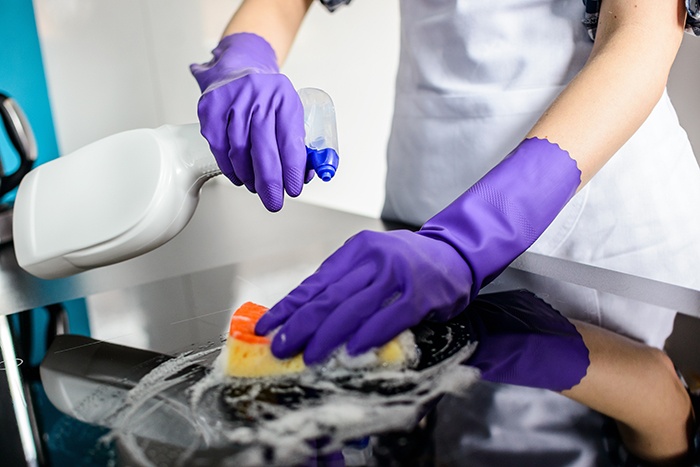By Ben Garcia
KUWAIT: The Philippines and Kuwait are close to signing a final agreement on the recruitment of Filipino domestic helpers. Meanwhile, an official from the Philippine Embassy's labor office in Kuwait denied a report that hundreds of contracts have been signed for the recruitment of domestic helpers. "No, there is no truth to that. We are still holding (online) meetings to finalize documents and some more issues," the official said.
The Kuwaiti government allowed the entry of newly-recruited domestic helpers from labor-exporting countries such as the Philippines, India, Sri Lanka and elsewhere from Jan 16. But negotiations between the Philippines and Kuwait with regards to the so-called 'unified contracts' are ongoing. According to a Kuwait Times source, if the unified contract agreement is signed, deployment of new domestic helpers will resume immediately.
Under the new unified contract, provisions will be added such as prohibiting employers from confiscating the passports of their housemaids. Domestic helpers will also have the right to have a phone, work not more than 12 hours a day and get enough rest and a weekly day off. They are also prevented from being transferred to other employers without written consent from the worker.
Philippine Labor Attache to Kuwait and Saudi Arabia Nasser Mustapha arrived in Kuwait recently from his Riyadh-based office to resolve issues surrounding the unified contracts. According to the source, until such a document is signed, there will be no deployment of new Filipino domestic helpers. Only returning Filipino domestic helpers can re-enter Kuwait, although they need to follow the 14-day quarantine procedure set by the government, plus the two required PCR tests upon arrival and at the end of the quarantine period. This too was eventually suspended due to the spread of the coronavirus.
On Sunday, the Chairman of Kuwait Union for Domestic Labor Offices (KUDLO) Khaled Al-Dakhnan was quoted by Al-Rai Arabic newspaper as saying that the first batch of Indian domestic helpers will arrive in about 10 days' time - the first to arrive after almost a year and a half of suspension due to the COVID-19 pandemic. Dakhnan however admitted that it will take time to meet the need for domestic helpers in the local market. The shortage of domestic helpers in Kuwait has reached an alarming level, according to KUDLO, especially as Ramadan begins next month.
"I've been talking to my Filipino friends if they have contacts of Filipinos willing to work as domestic helpers. I am ready to pay a salary of KD 200 to KD 250. My wife is giving birth next month, so I need one or two Filipina housemaids. For the past three months, I have got no reply from recruitment agencies and even from individuals. It's really hard to find a housemaid now. I hope they will be able to reach an agreement so we can hire domestic helpers as soon as possible," a Kuwaiti man married to a Filipina noted.
For the Philippines, which sends the largest number of household workers to Kuwait after India, there are still pending issues to be settled. These issues were all resolved during talks, but officials are not ready yet to divulge the details of the new agreements. As of June 2020, there were nearly 680,000 domestic workers in Kuwait - 325,000 from India and nearly 150,000 from the Philippines. Local and their international partner agencies are allowed to charge employers up to KD 990 for hiring new domestic helpers.
On Jan 3, 2020, the Philippines implemented a ban on sending domestic workers to Kuwait following the killing of a housemaid named Jeanelyn Padernal Villavende on Dec 28, 2019. The ban was lifted a month later after consultations with the Philippine Department of Foreign Affairs (DFA), the filing of appropriate charges against the perpetrators and after Manila and Kuwait City agreed the full implementation of a harmonized employment contract for Filipino domestic workers. On Dec 30, 2020, a death verdict by hanging was handed by the criminal court to a Kuwaiti woman who killed Villavende. The woman's husband was sentenced to four years in jail for covering up and not reporting the crime.
.jpg)




